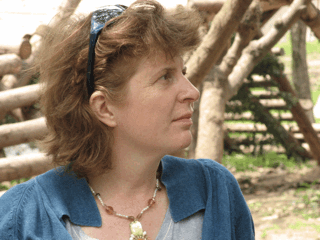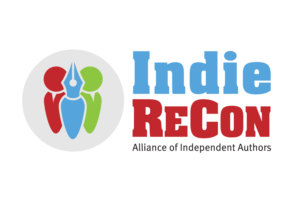Is there anybody reading me?
Some years ago i did an MA dissertation called “Is there Anybody reading Me?” which explores why people write without certain markets and found that 99.9% more people were writing than were being published.
This statistic usually shocks and I often wonder if today’s indie authors have any idea of the sheer volume of potential competition. In the early day of The Literary Consultancy, our job was relatively straight forward, if never easy: to provide all writers working at any level, in any genre, with an editorial map which they could choose to implement or otherwise.
In cases where the writing was potentially ‘marketable’, we would seek to link clients to literary agents, or small publishers, and recommend those whom we didn’t think would thrive in a commercial environment but had nonetheless written a good book to the one self-publishing outfit we knew not to rip people off.
In a direct sense then, we set ourselves up as experts in determining ‘literary values': daring to say when a work wasn’t communicating as well as it might, and being prepared to argue our reasoning for this on editorial grounds at the level of language and structure.
Where did those values come from? It’s a good question.
Our editors had all worked for publishers, or taught at MA Creative Writing level or above, and/ or had successfully published themselves. I myself had studied English Literature at University, worked at Virago and been published as an editor and writer.
In addition, however, to this level of ‘expertise’ (arguable, I know, in a world where any reader who enjoys a work is more valuable potentially to an indie to any number of ‘informed critics’) we needed our editors to be empathic, articulate, skilled communicators themselves, open-hearted and open-minded. The qualities needed to work for TLC were not only literary, but human.
Hooray for the Digital Age
As a writer myself and one who loves working with writers, when self-publishing became digitalized and writers were given the potential to go directly to market, I was intrigued and excited: for the previously unimagined possibilities being afforded, for new readers to be found, for new literary forms, and also, for the possibility of circumventing publishing gate-keepers, for I knew that more people than were being published might find readers if they had the means to do so. Yet, a few years into the digital revolution, I find myself concerned that:
- The types of books and writer thriving within indie pub are limited and creating a new form of winners and losers, as well as playing into the hands of new conglomerates which limit creative freedom rather than promote it
- That without professional champions offering more expertise than the average reader, we run the risk of losing over 300 year’s worth of accrued literary knowledge which has informed our publishing to date
- That editors and authors have self-congratulatory relationships which are based expedience rather than an objective understanding of the best literary criteria
- That the story-led ‘cut away all writing that isn’t direct’ style of book is impoverishing our literary culture, taking it backwards.
I am not saying the new systems don’t offer rich opportunity for some but that it’s looking a far cry from the genuinely democractic environment many of us had hoped for. And it is terrifying many writers who have good books to sell (I know, because we talk to them daily), while being far more congenial to those whose work takes a certain form, or who have certain personality types.
None of this is radical or new. It's all depressingly rather old hat.
“Penny Dreadfuls” and High Art
What exactly is happening to the quality of published books, to our literary values in the digital age, will be researched for years to come, for as is well documented, we are in the middle of a publishing revolution on a scale unseen since the invention of the modern printing press, and subsequent invention of the modern English novel by Samuel Richardson (Clarissa) in the 1740s.
Back then too, there was a crisis about what mass production would do to quality writing. Arguments around what is ‘good’ and ‘bad’ writing, ‘literary’ and / or ‘commercial’ are as old as publishing.
The history of the ‘penny dreadful’ novel testifies to this, a ‘penny dreadful’ being a pejorative term for cheap popular serial literature produced during the nineteenth century, stories typically published in weekly parts, each costing one penny, with subject matter that was typically sensational and focusing on the exploits of detectives, criminals, or supernatural entities.
(I wonder if any bells are being struck? Perhaps there is nothing new under the sun?)
Historically, self-publishing has worked at the other end of the spectrum, to enable a writer to fiercely protect their ‘literary values’ from editors in commercial publishing houses. Perhaps most famously within the UK, Virginia Woolf founded the Hogarth Press with her husband Leonard, in part to retain total editorial control over her output.
As JH Willis explains:
In Woolf’s case, “What began as a recreation (self-publishing) became a necessity. Willis explains that Woolf “could experiment boldly, remaking the form and herself each time she shaped a new fiction, responsible only to herself as writer-editor-publisher…She was, [Woolf] added triumphantly, ‘the only woman in England free to write what I like.’ The press, beyond doubt, had given Virginia a room of her own” (Willis 400).
I wish I could believe that a literary genius was as able to make herself discoverable among the many millions of people seeking to dominate the algorithms, as it competes with pornographic leprechauns and the like.
Raised Literary Awareness
When I set up TLC I did hope that a by-benefit of all writers being able to access informed, editorial feedback would be that writers would learn how editors think. Previously, curt replies from editors and agents did nothing to improve a writer’s chances of understanding why their work had not been taken on.
Since then, in addition to a range of other editorial services and a mushrooming of creative writing teaching environments, I would argue that we have seen a steady rise in understanding what ‘literary values’ are. That said, there is still much learning on the ground about what editing should or shouldn’t be, and a hunger for the detail therein, as our freelance employee Yen Ooi’s blogpost testifies.
Potential Threats to “Literary Values in a Digital Age”
To summarise: these are the threats to literary values as I see it.
1. That certain types of writers will flourish at the expense of others, namely:
- genre writers at the expense of a richer, more varied diversity of writing, which will see many books struggle to be discovered without champions
- Writers, often with a work history in marketing and technology, who are able to self-promote
- Writer who can afford self-investment and risk
- Authors who have been pushed and improved by a professional editor who is not being directly paid for the work (some of our best writers have a long history of rejection before success).
- A rich breadth of literature, not just those books which corporates wish to promote
- The expert reviewer who can compare a book to the rest of a writer’s oeuvre and contextualise it within the framework of a literary history





